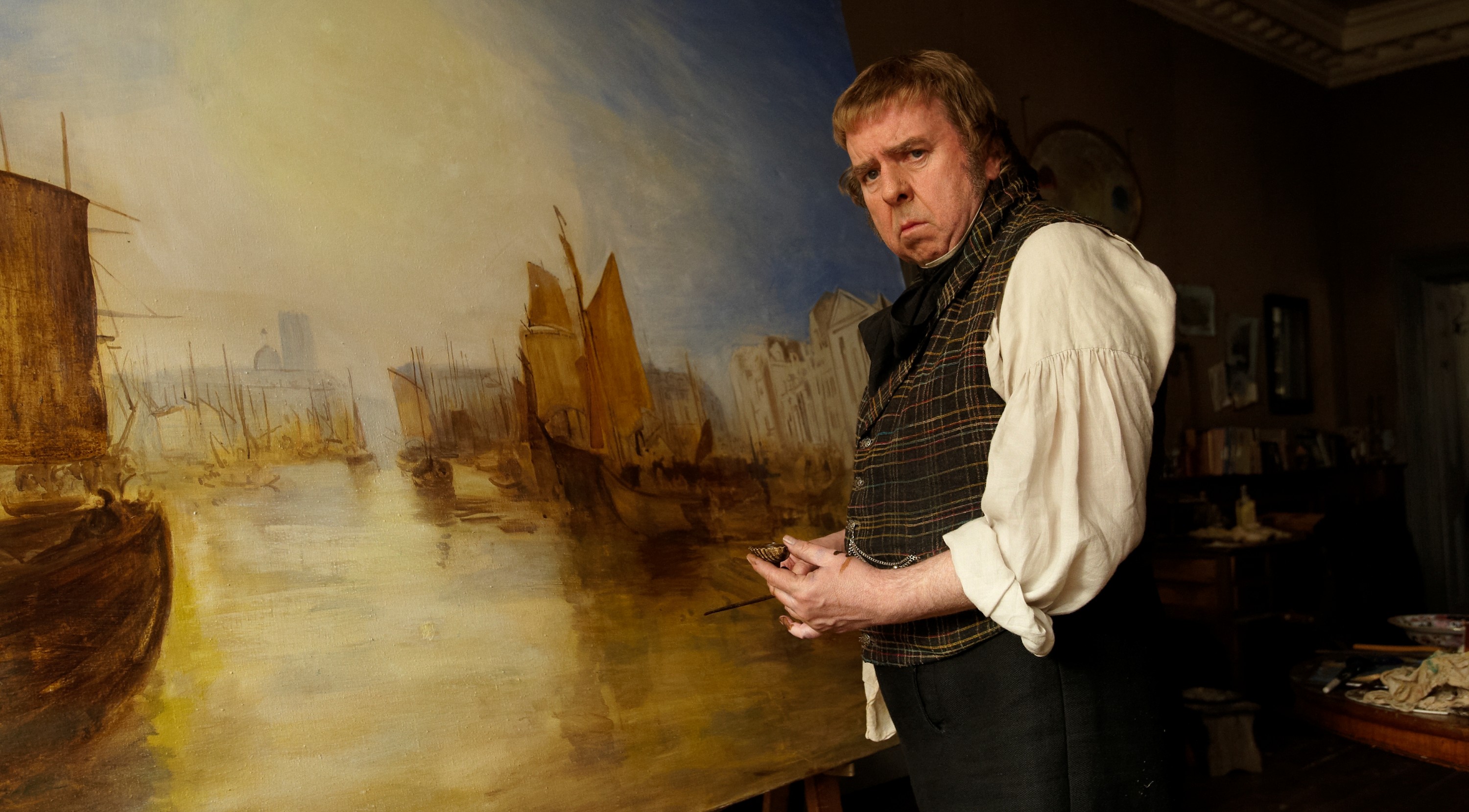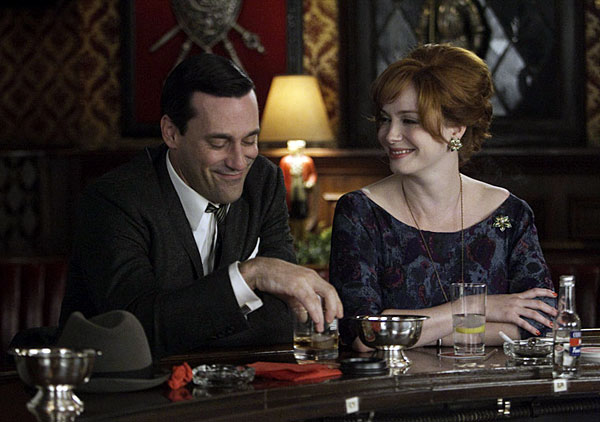 Mr. Turner
Mr. Turner
Written and directed by Mike Leigh
UK, 2014
Suffused with the landscapes that the famed British painter J.M.W Turner admired and translated into legend, director Mike Leigh’s newest film hints at the inner life of the man behind the accomplishments but stops well short of explicating his eccentric actions. Unable to articulate his feelings and more often than not treating the people around him with callous indifference, it’s obvious that Leigh’s Turner has cultivated an environment of emptiness that has allowed him ample space to do exactly what he wants with his life. The silence is frequently richer than the dialogue, with the luscious scenery speaking more to the turmoil of his mind than he can adequately express to those who want to be close to him. Mr. Turner tests one’s patience as we crawl through the waning years of the man’s life, but Spall’s offbeat performance and the gorgeous backdrops immerse the viewer just enough to offset the sparsity of the artist’s stunted emotional intelligence.
As Turner, Timothy Spall’s recurrent low grumbles are amusing even as they are visibly tinged with melancholy. He openly snarls and finds more joy in the exercise of his gift than in spending time with anyone who doesn’t immediately have something material for him. Spitting out those who demand more of him than he wants to offer is a defensive remedy that appears to fend off a fearful void within him that we don’t have the privilege of accessing. It’s a delight to finally see character actor Spall (Secrets & Lies, The Sheltering Sky, Topsy-Turvy) be lavished with all the time and attention he gets here. He dominates the screen by way of protectively growling and huffing away the concerns of others or inelegantly concealing his grief. At times made repugnant by his disinterest in others, there are moments when Turner is completely alone with his subservient father or in the company of a longtime lover at a seaside inn that ring with true intensity and meaningfulness because he has let so little of himself show to the world. There is something to admire in Turner’s deepest moments being so sincerely private and understated in scope.

The unconventional Turner coming from meager means, having a minimal education and climbing to such sustained success as an artist that he was rich enough to work unhindered for decades, is remarkable but left unstated by Leigh, except for the presence of his father basically working as a servant in his son’s house. There is a sense that Leigh doesn’t have much material to fill in the blanks of the subject’s later life, nor does he have any inclination to step much beyond what he wants to have Spall subtly infer. The small, mundane moments of Turner’s life are engaging but are spaced much too far apart to retain most of the audience’s absolute attention. This up-close examination defies traditional cinematic satisfaction by denying us a connection to Turner’s earlier experiences that have shaped the withdrawn man he has become. The story only acknowledging his declining years is fascinating in its simplicity but offers little catharsis. The best scene of the film is not a revelation about Turner and his hidden demons, but when he is confronted with the advent of photography. His confusion about a camera being able to mirror reality so effortlessly is humorous but almost funeral in execution. His breathtaking and exquisitely made paintings won’t lose their significance but they will be less exceptional in their ability to bring the wonders of the world to the public. Without information to fortify the narrative, the director wisely allows the majestic settings to wash over the viewer and gives the rest of film’s credibility almost entirely over to Spall’s efforts.
With the script so noticeably lacking exposition, Spall staves off the some of the hollowness of Leigh’s minimalism with his audacious and nuanced depiction of Turner’s idiosyncratic personality. Besides Spall, the greatest aspect of Mr. Turner may very well be that Leigh stresses with some import that the man behind these spectacular renderings of nature is not a figure that can be possessed by history. However exhaustively we gaze at his work, we cannot condense his spirit to something knowable.
— Lane Scarberry






